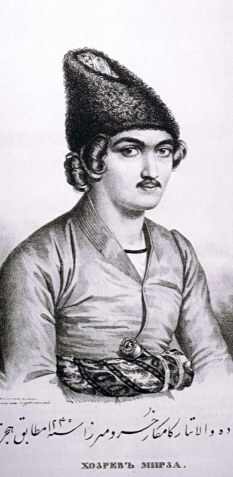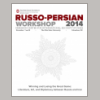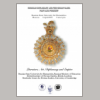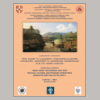
Literature, Art, Diplomacy and Empire: Khusrau Mirza’s Mission to St Petersburg in 1829
This is an international project (with colleagues in Iran, Russia, Georgia, UK and USA), dedicated to retrieving the primary (archival and museum) as well as newly published materials related to the most successful diplomatic mission led by sixteen-year old Khosrow Mirza (1813-1875). The seventh son of the Crown prince ‘Abbas Mirza travelled from Tehran to St Petersburg after the Tehran massacre of the Russian embassy, including its head, Russian minister plenipotentiary A.S. Griboedov (1790-1829) on 30 January 1829.
This ‘Redemption’ mission, consisting apart from the Qajar Prince of experienced diplomats and high ranking politicians, was of extreme importance not only for Persia and Russia, but for all participants in the Great Game, determining its future direction. As such it generated several contemporary records in Persia and Europe, including scrupulous information about the situation at Persian, European and Ottoman courts and the Eastern military fronts.
The mission arrived at the Russian court at the peak of its glittering splendour and imperial might, due to the magnificent military successes in the East and West as witnessed by the victories over Napoleon (1812), the Ottomans (1806-12 and 1828-9) and the Qajars (the treaties of Golestan in 1813 and Torkmanchay in 1828). Two Russian cosmopolitan monarchs, Peter I and Catherine II, who almost single-handedly turned a backward country into a mighty super power due mainly to their reforms of the government and army, became models for 19th-century Iranian reformers, while British imperial policy, in many cases equally reckless as that of the Russians, acquired an established reputation of being “behind all evils of the world”. The euphoric diplomatic and political success of Khosrow Mirza, who had all the potential to become a Persian Peter the Great had, however, a depressingly disastrous finale both for him and for his country.
The project is supported by a grant from the British Institute of Persian Studies to conduct research in the archives in Georgia and Iran, and to organise a workshop at Ohio State University, Mershon Center for International Security Studies.
Links
Russo-Persian Workshop 2014 Khosrow Mirza's mission to St Petersburg in 1829 Tbilisi workshop ECIS-8 double panelFiles
Gallery




